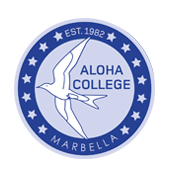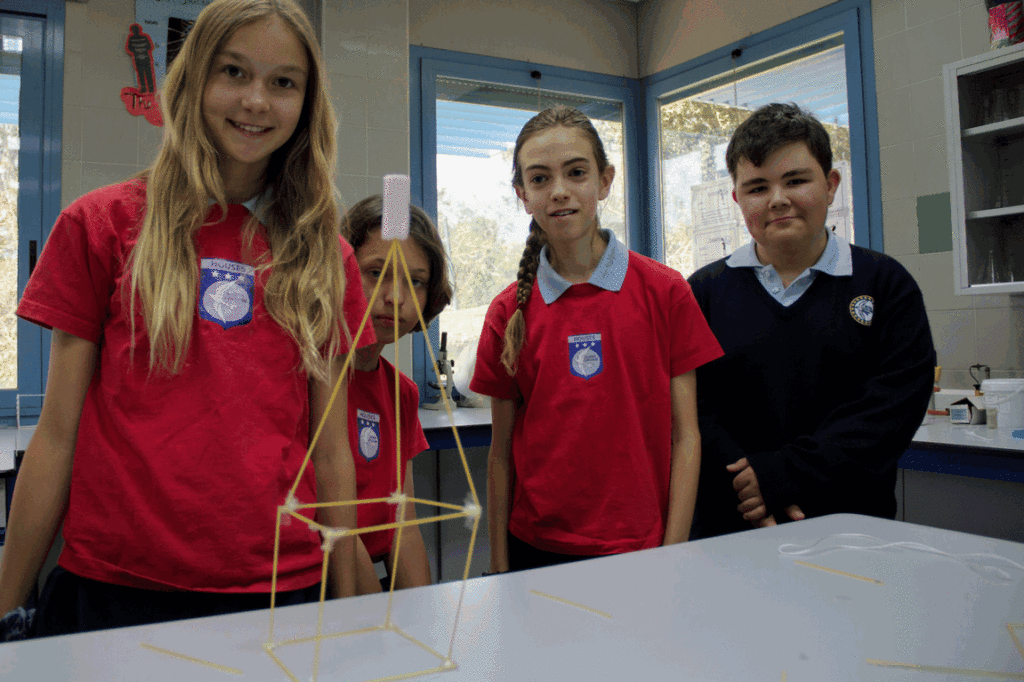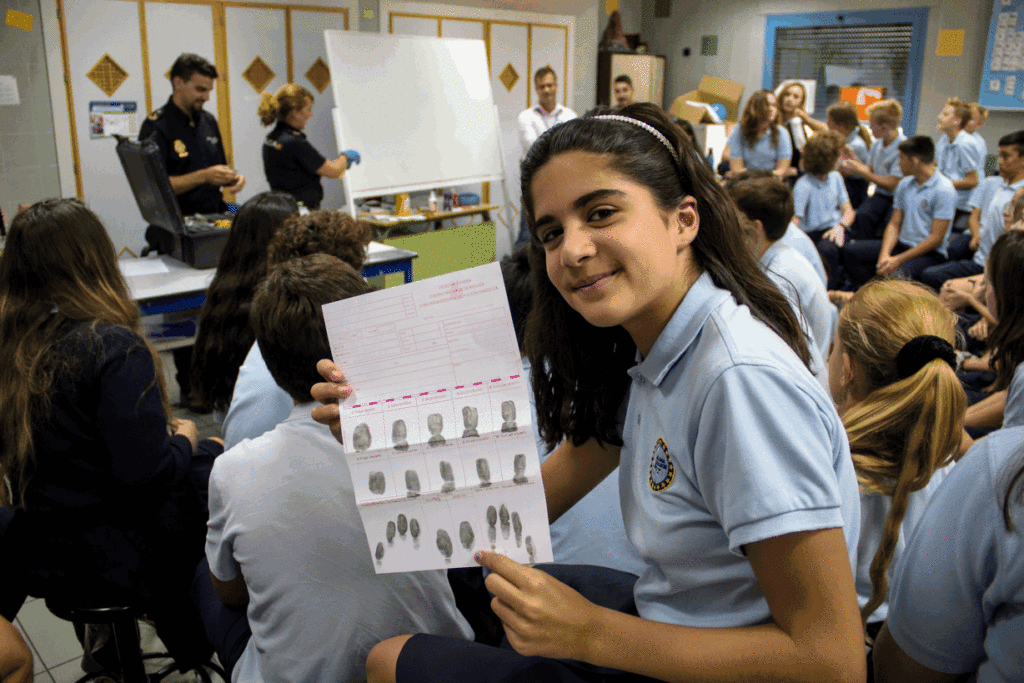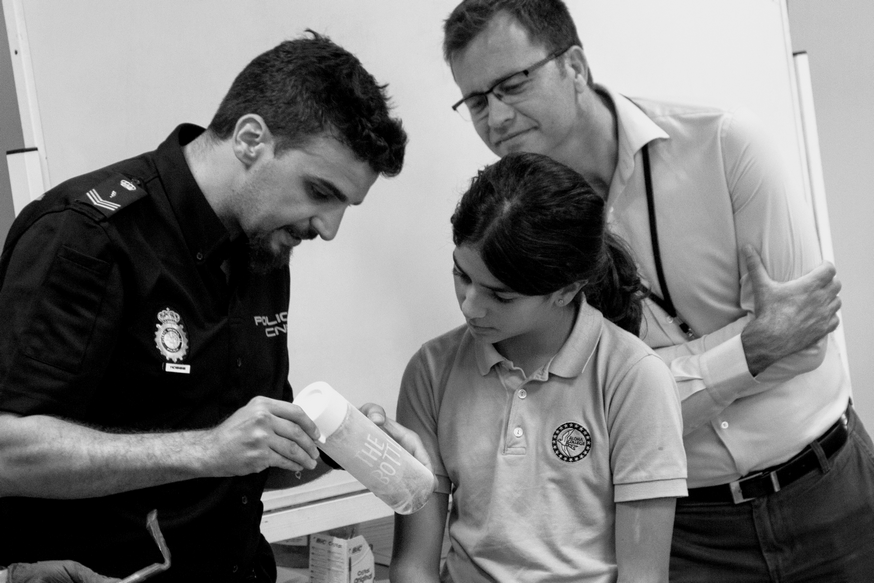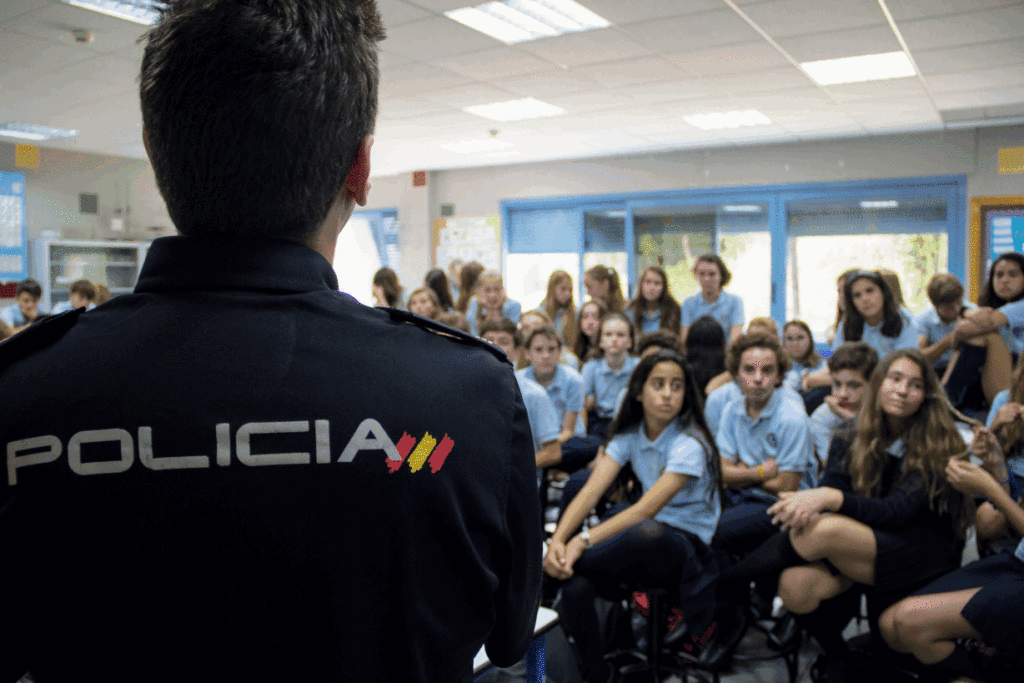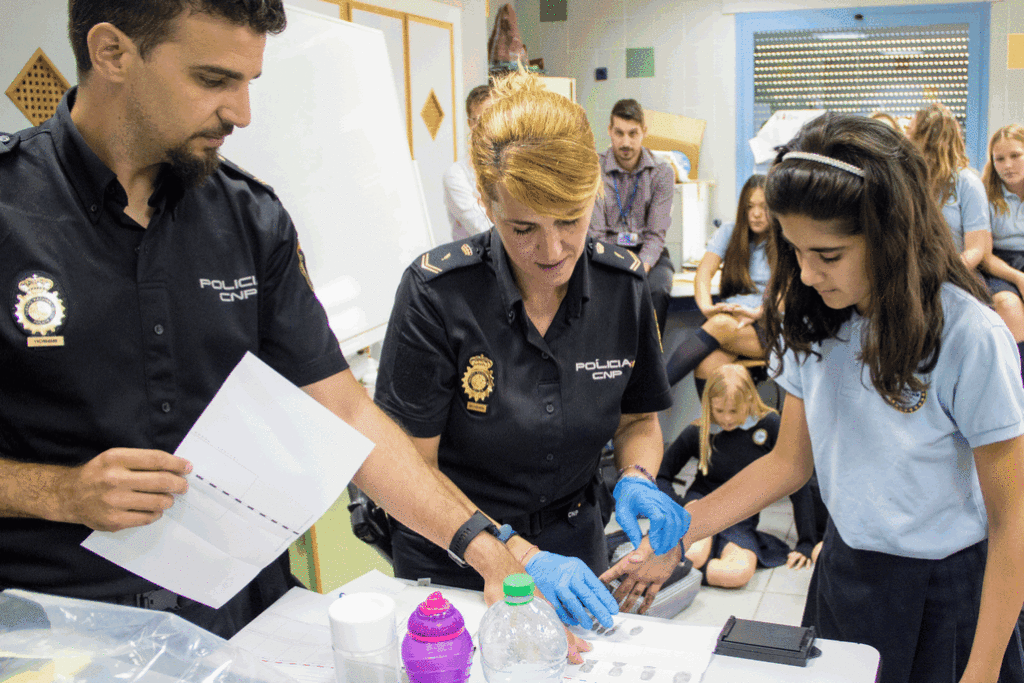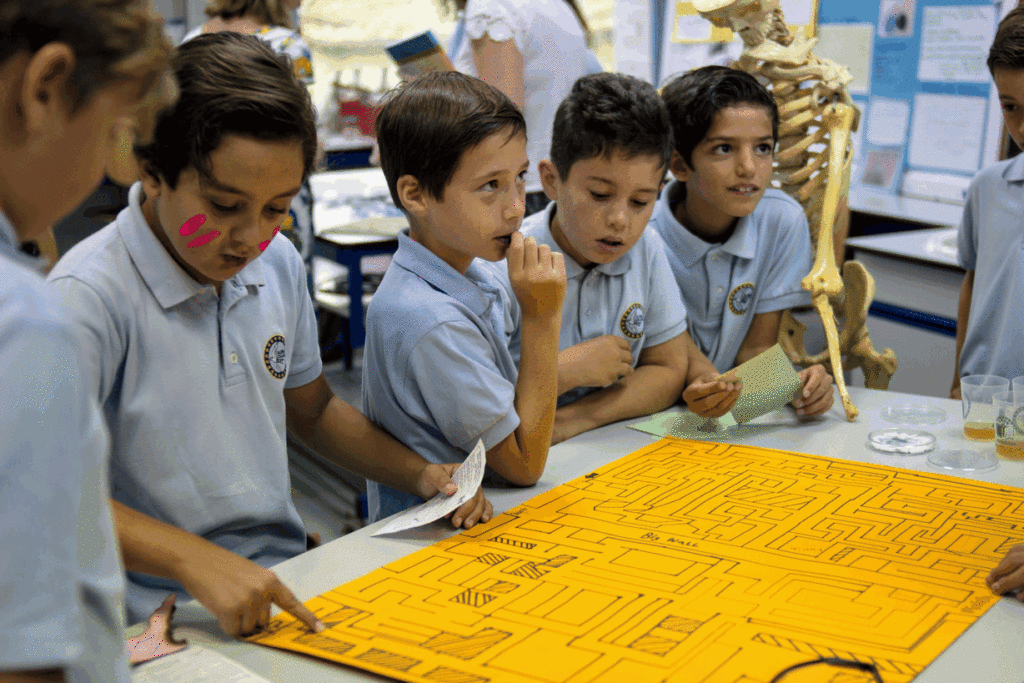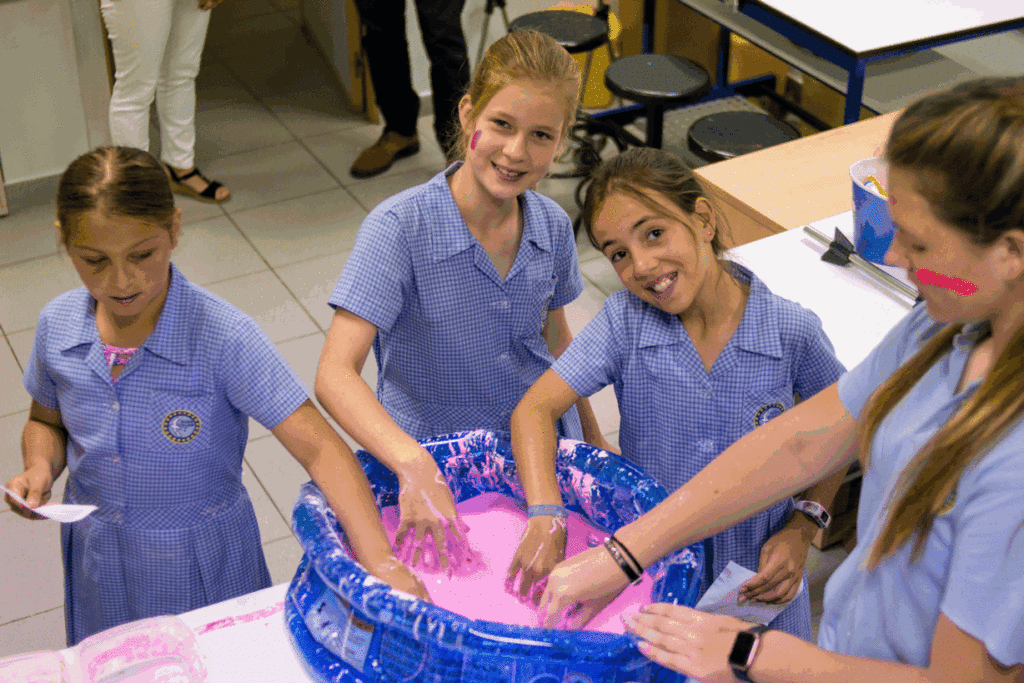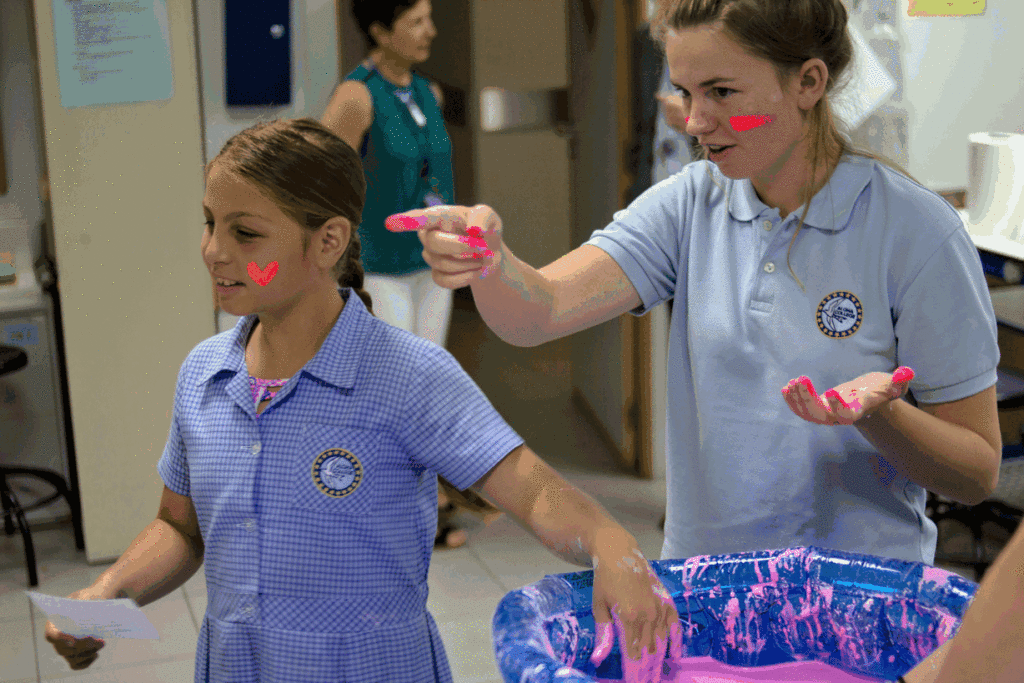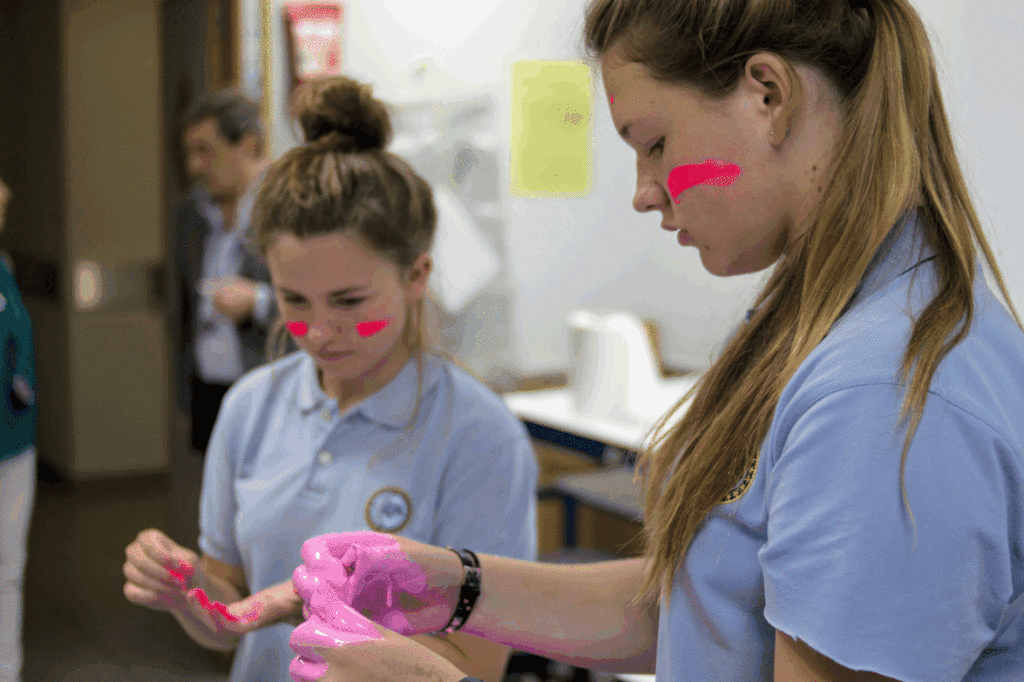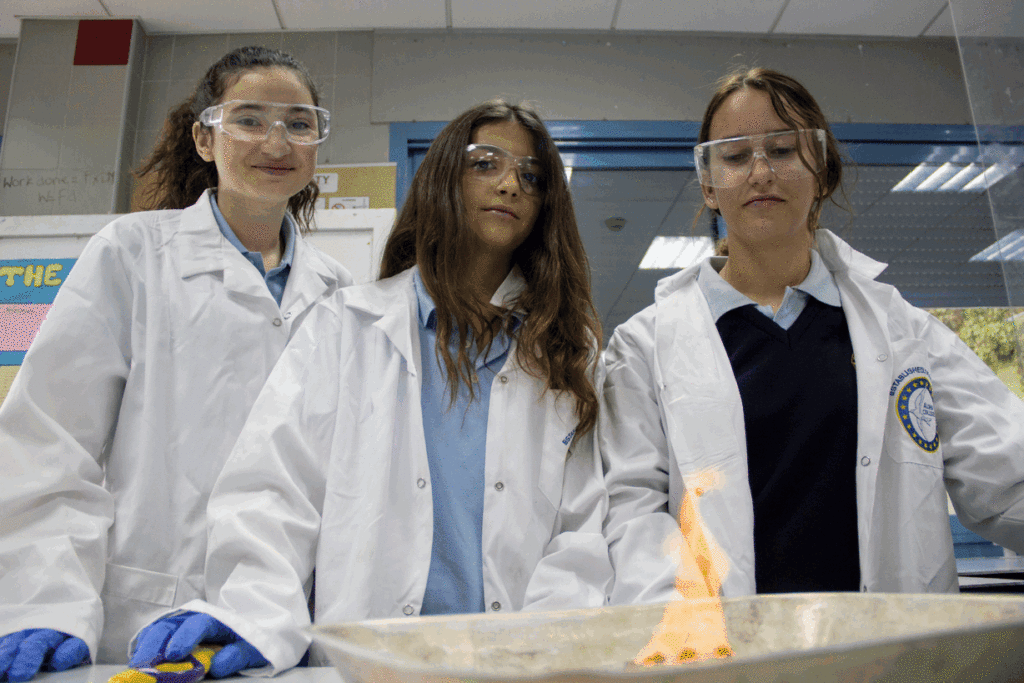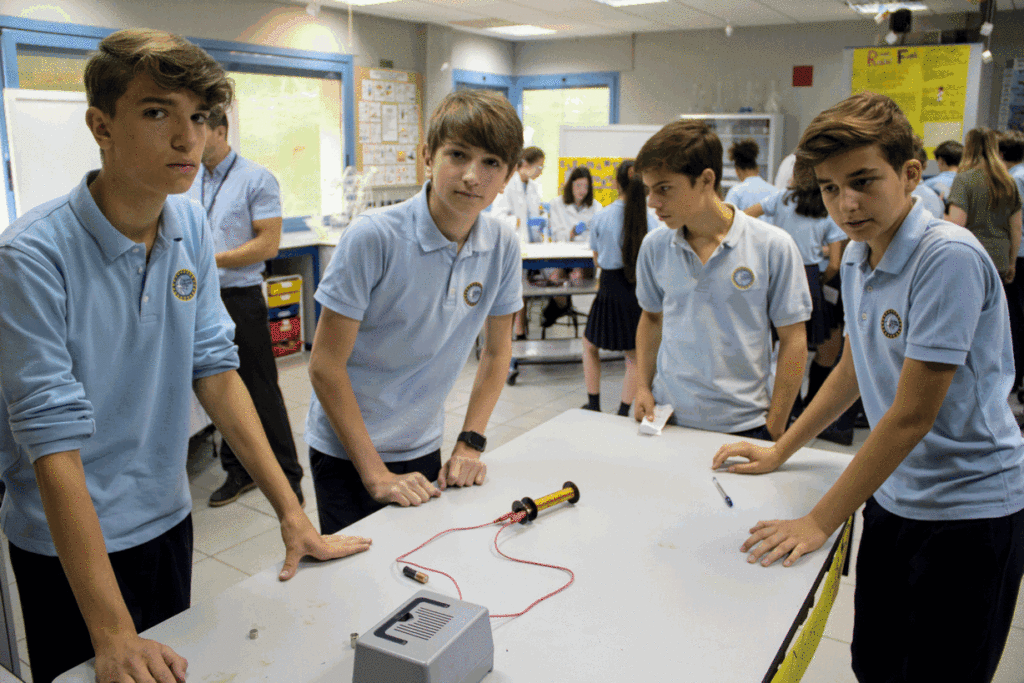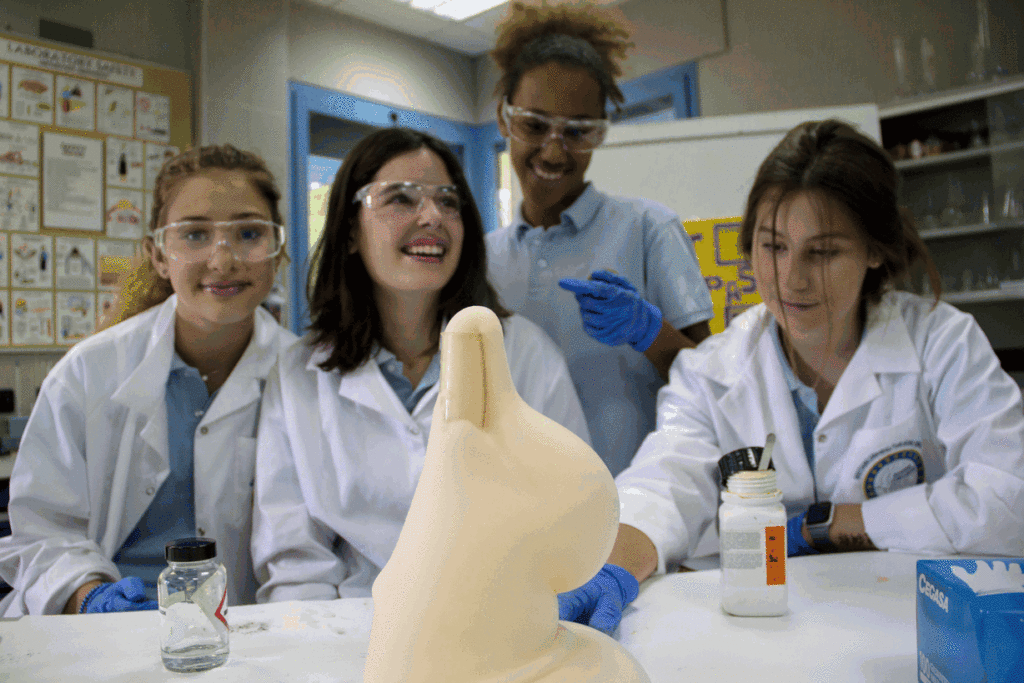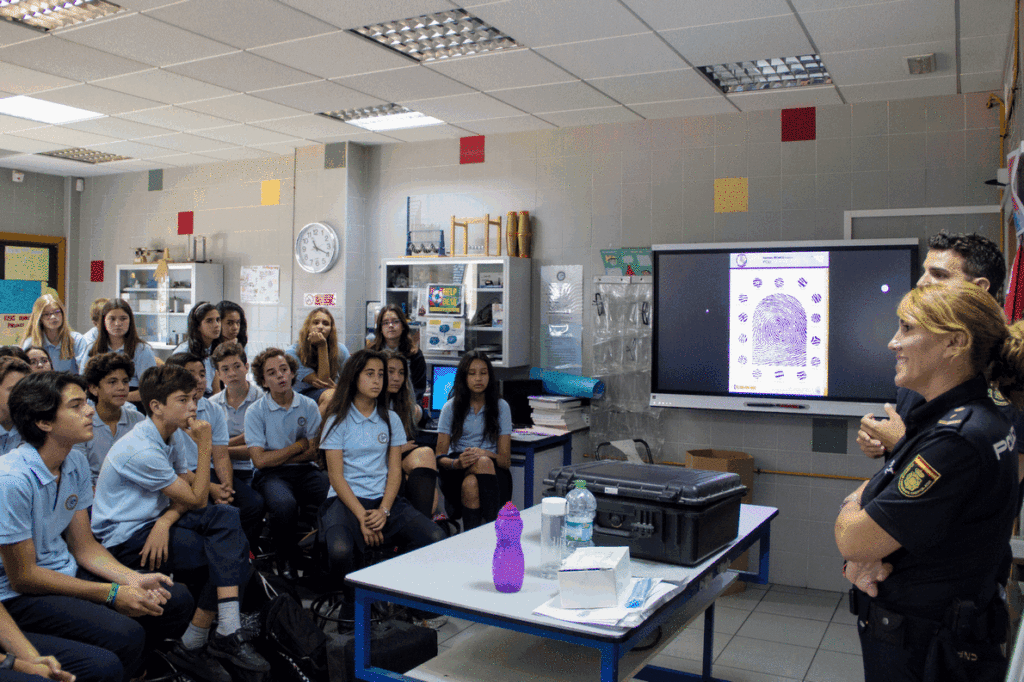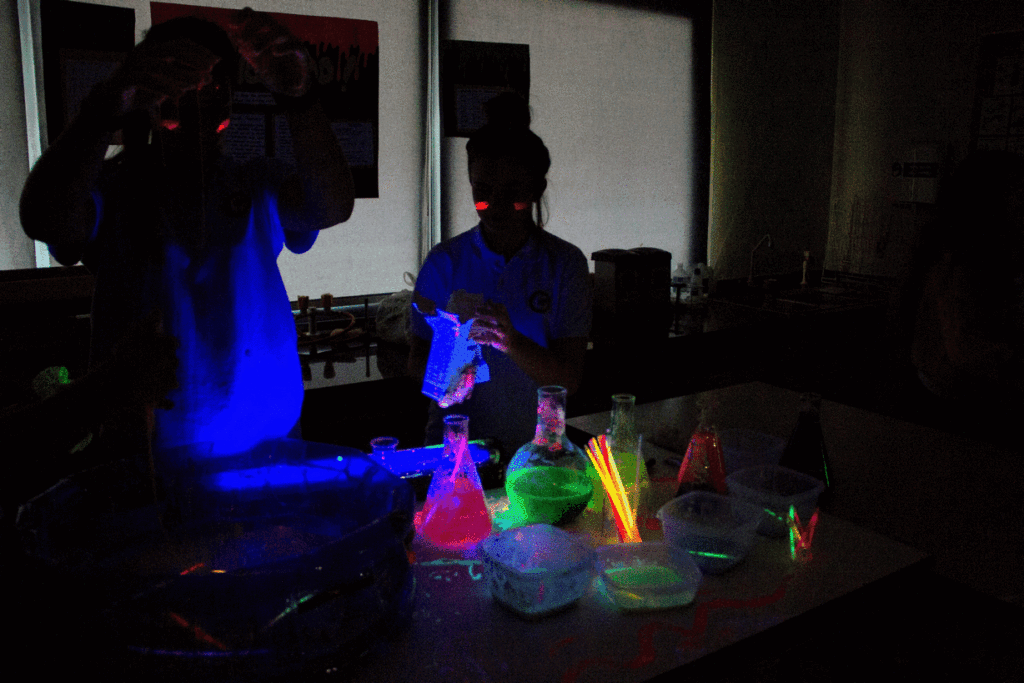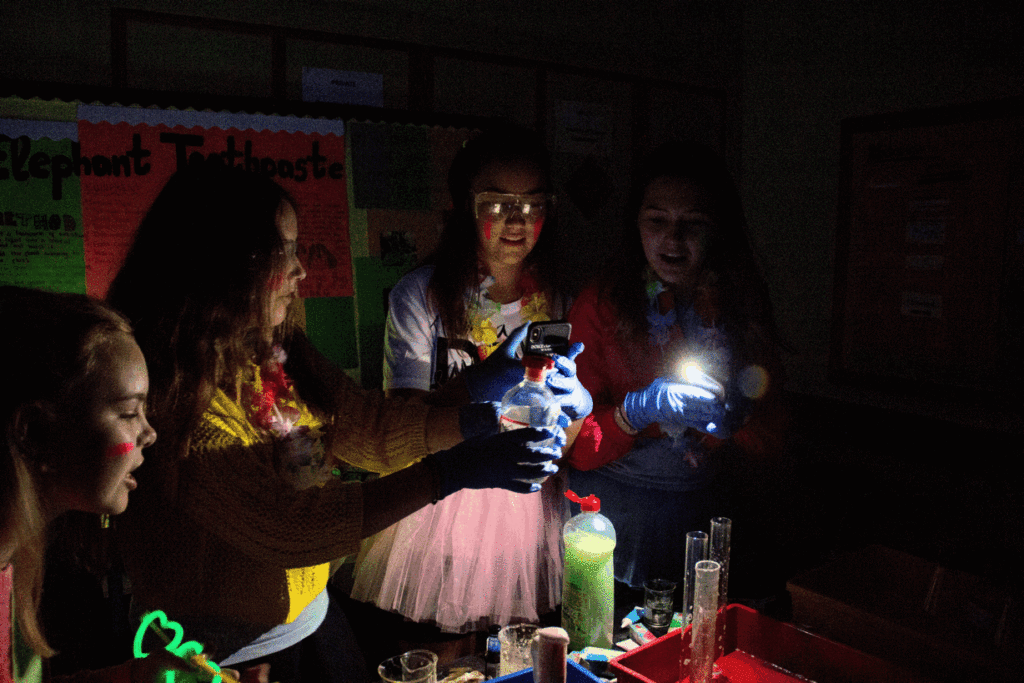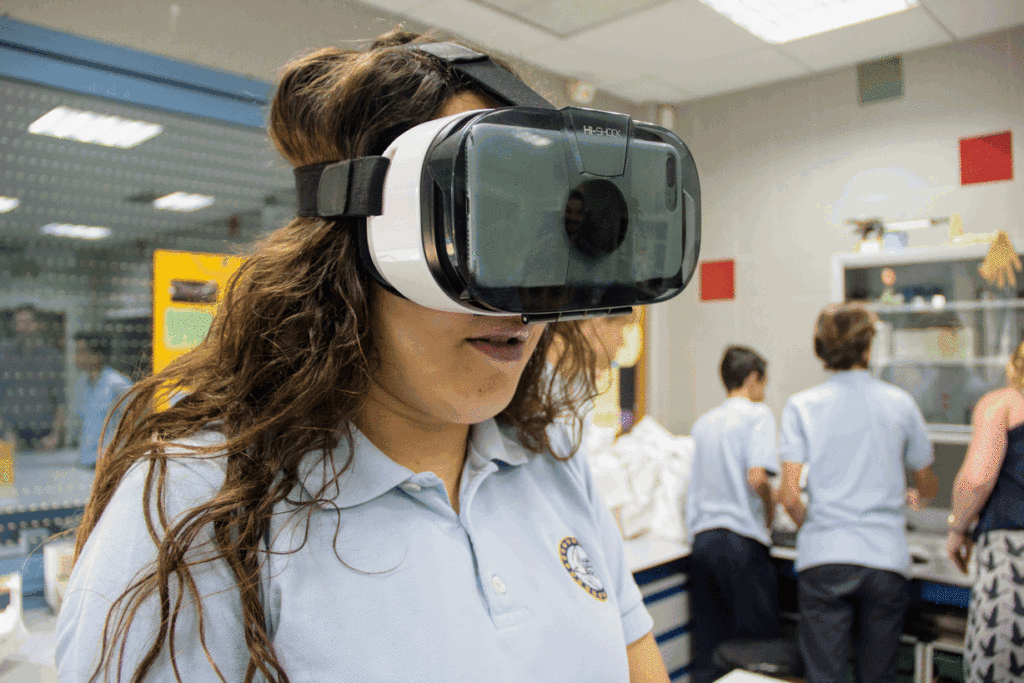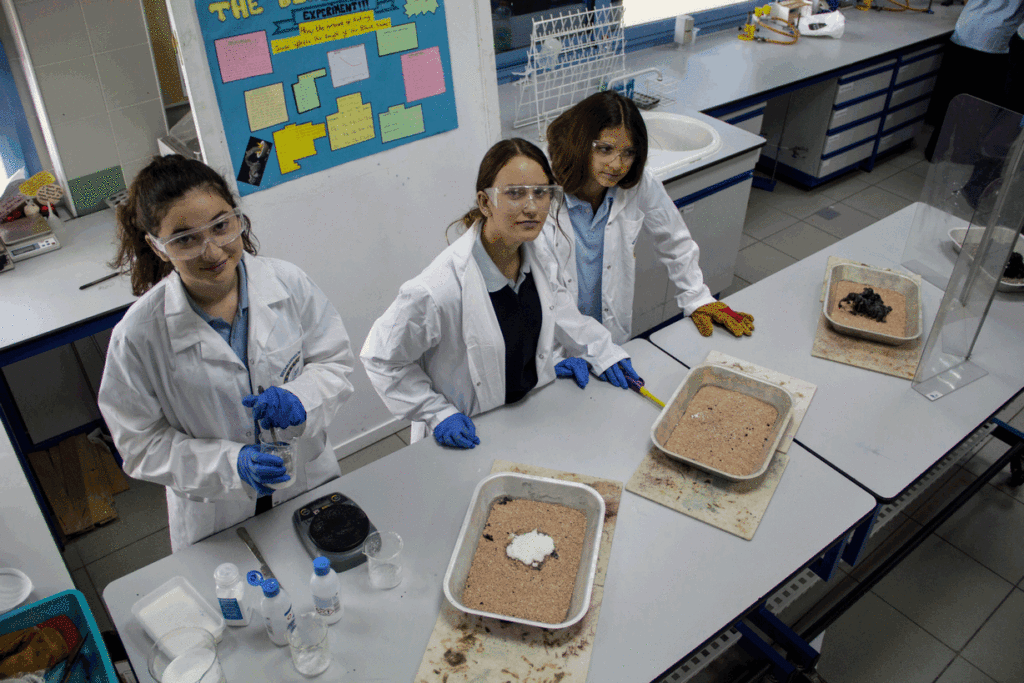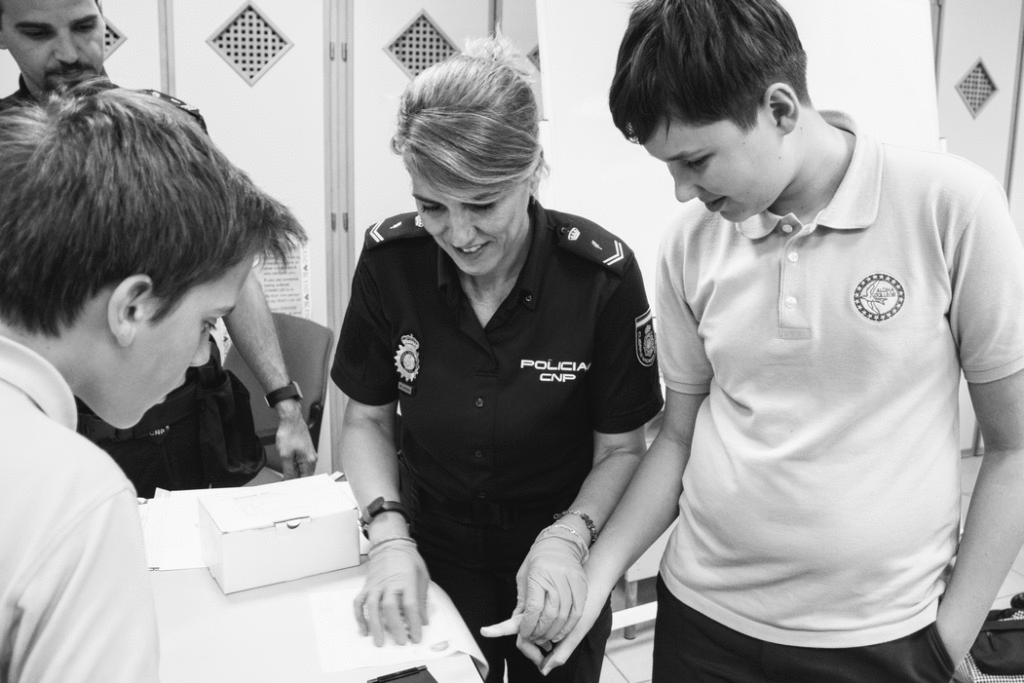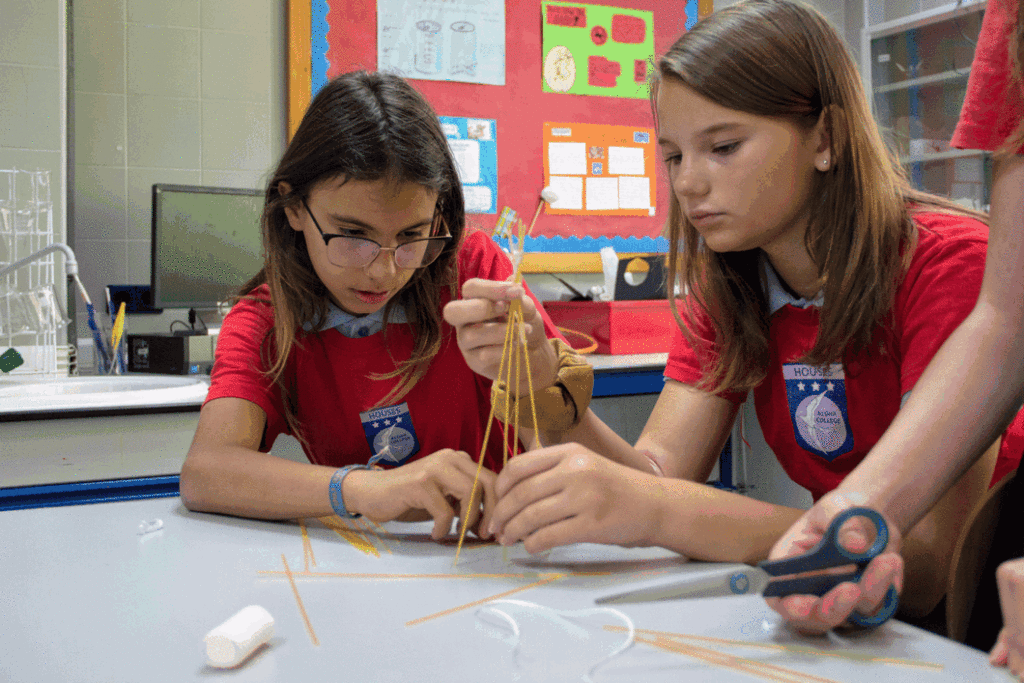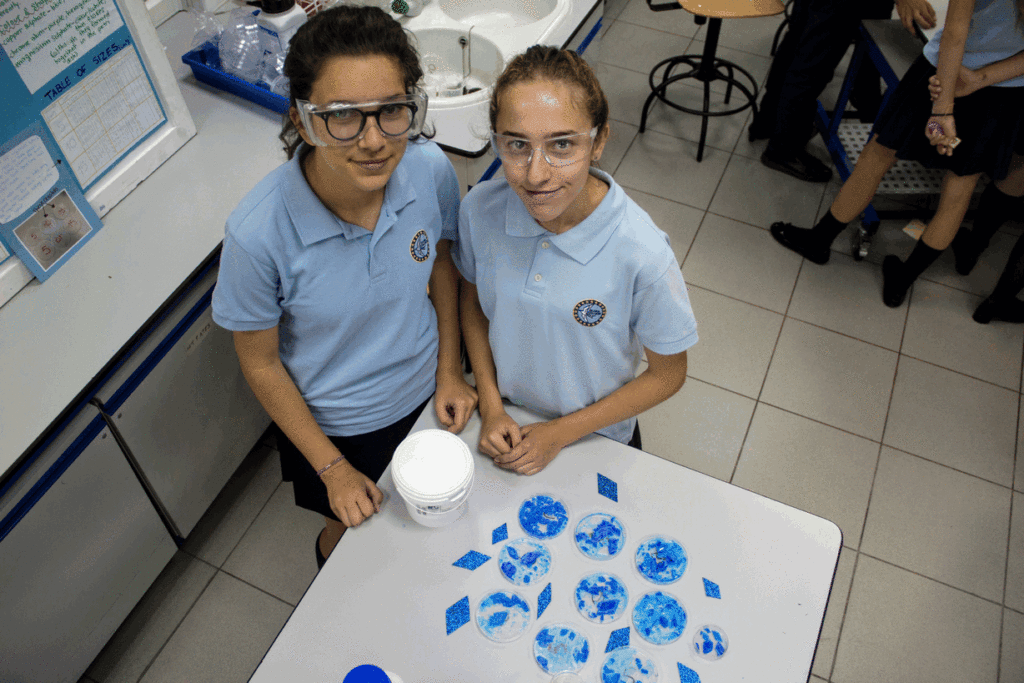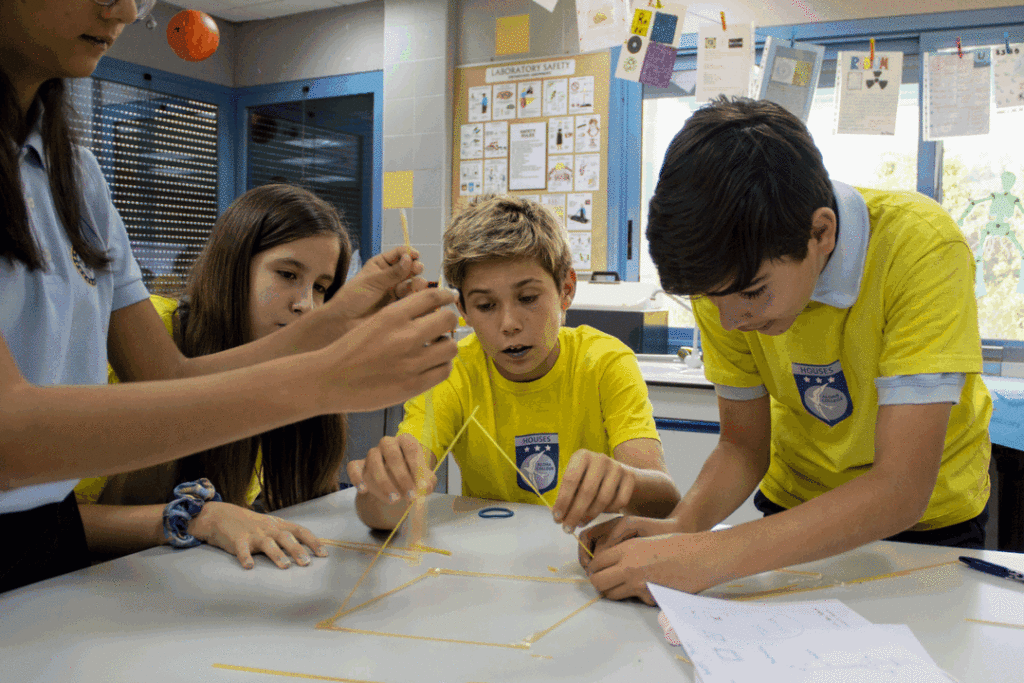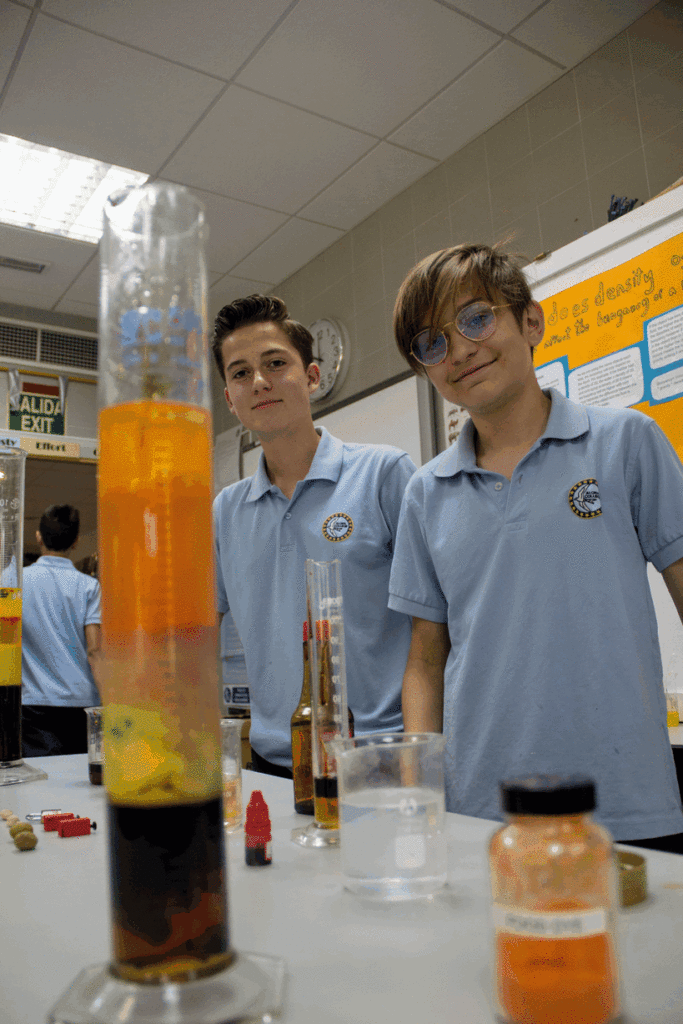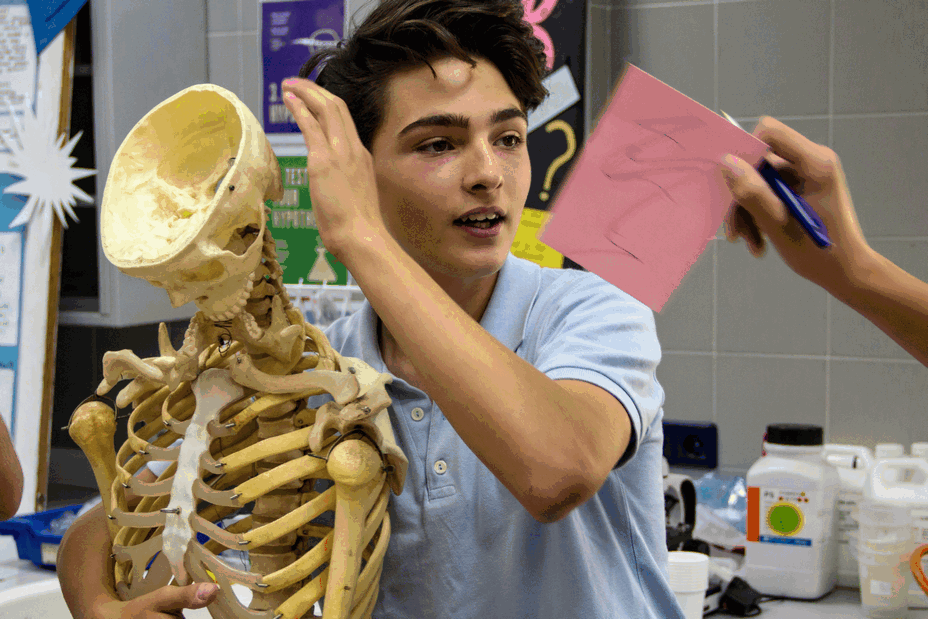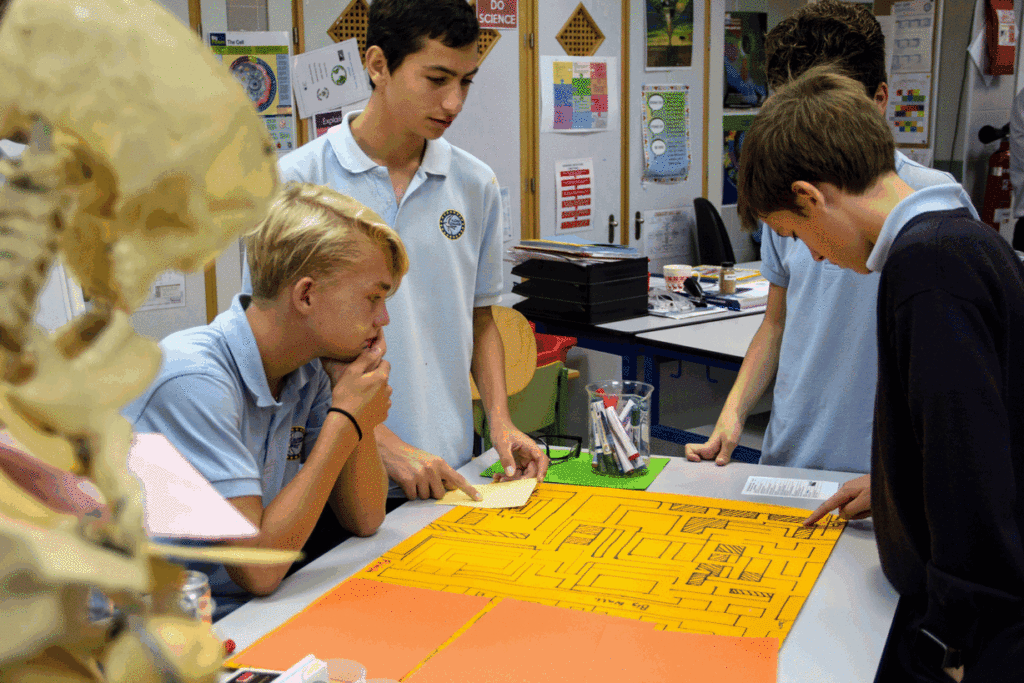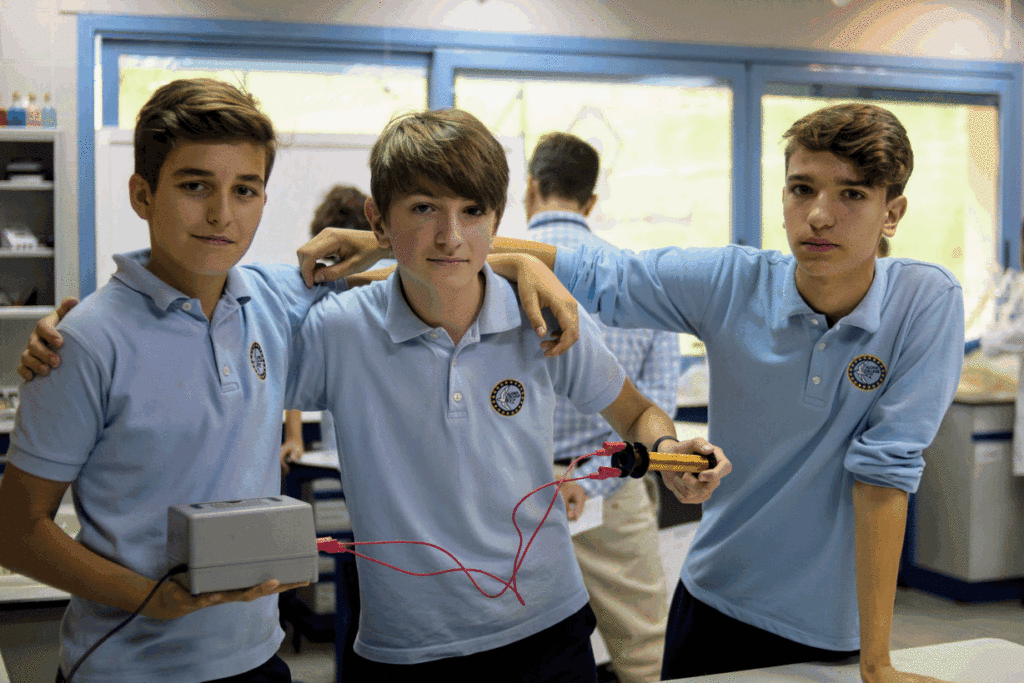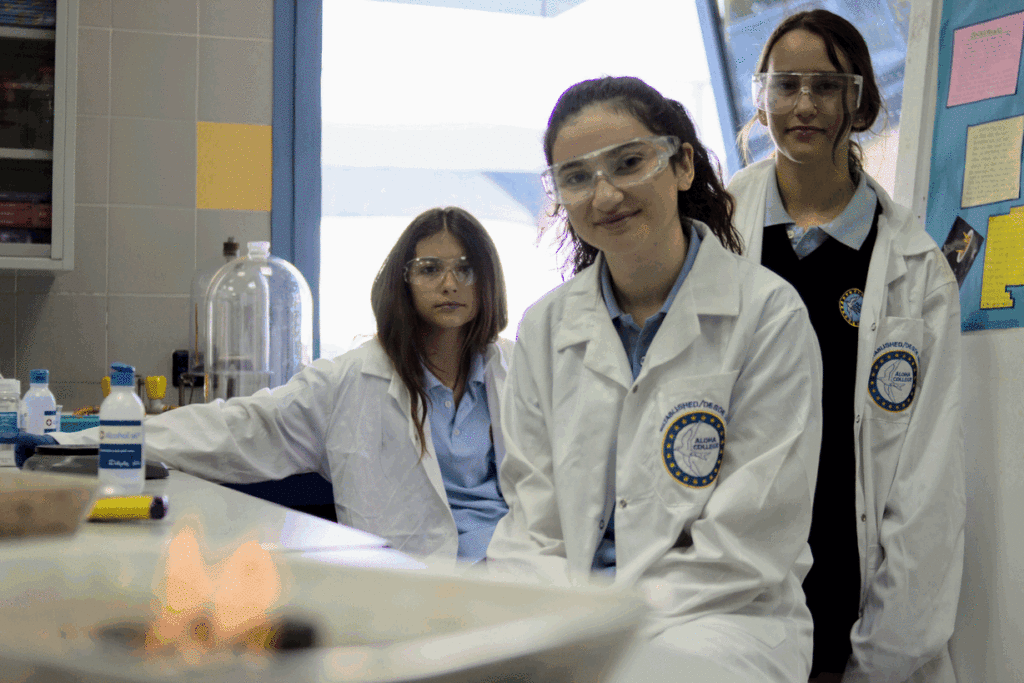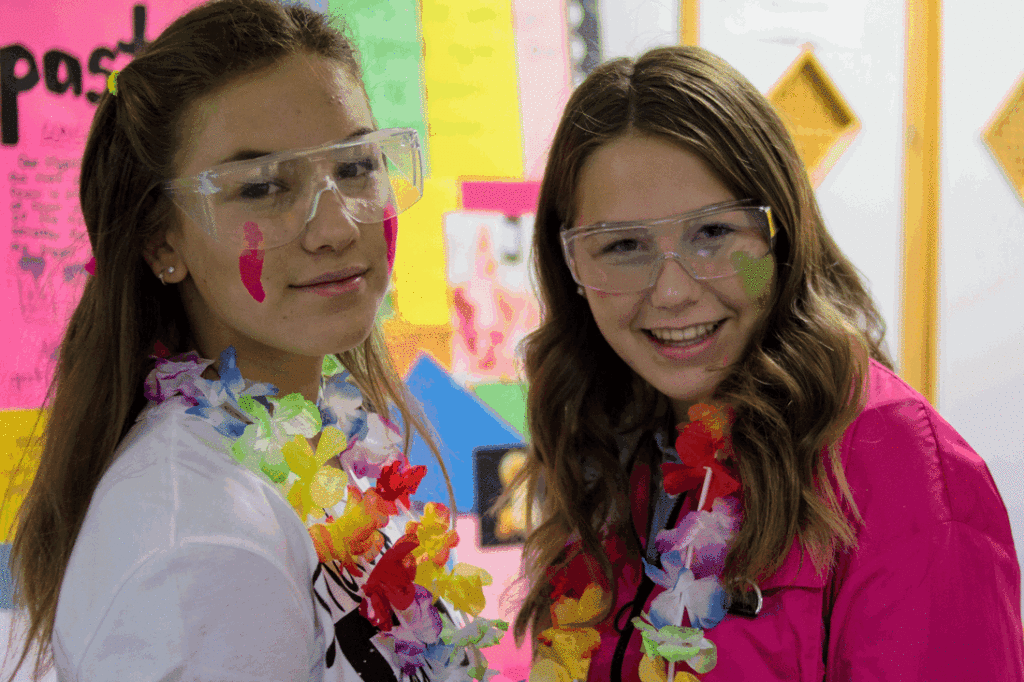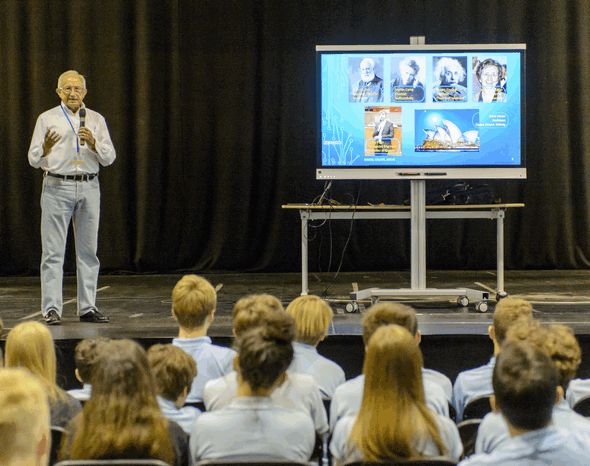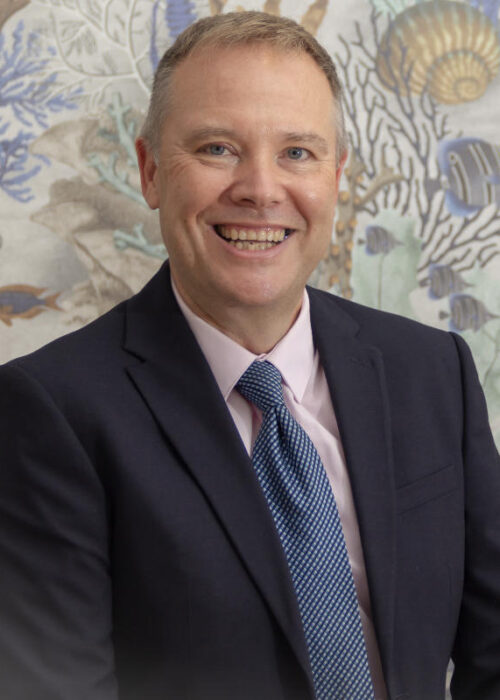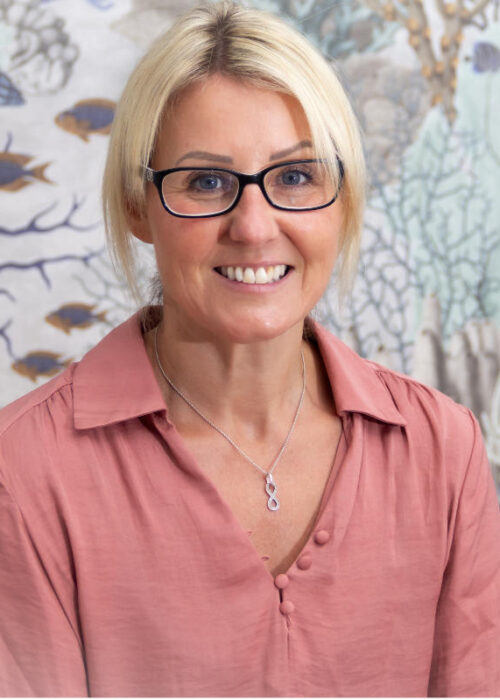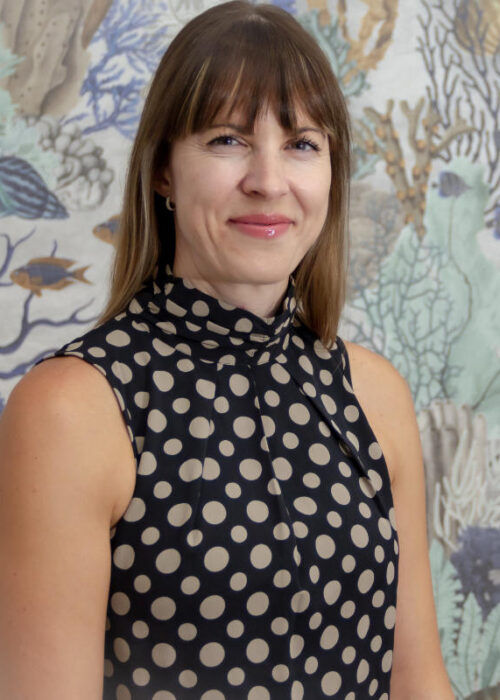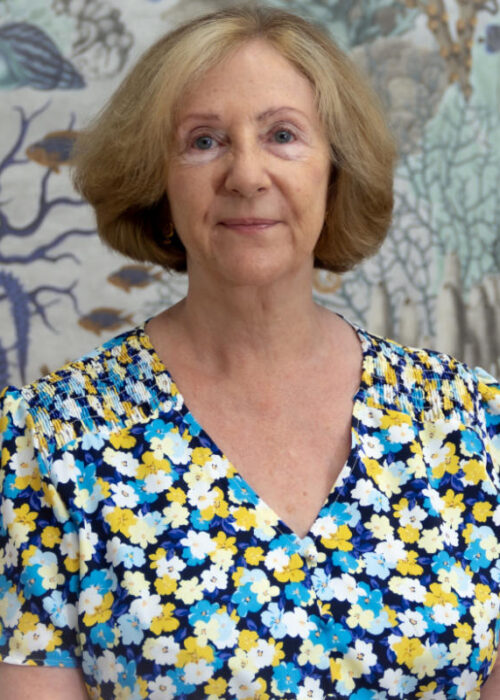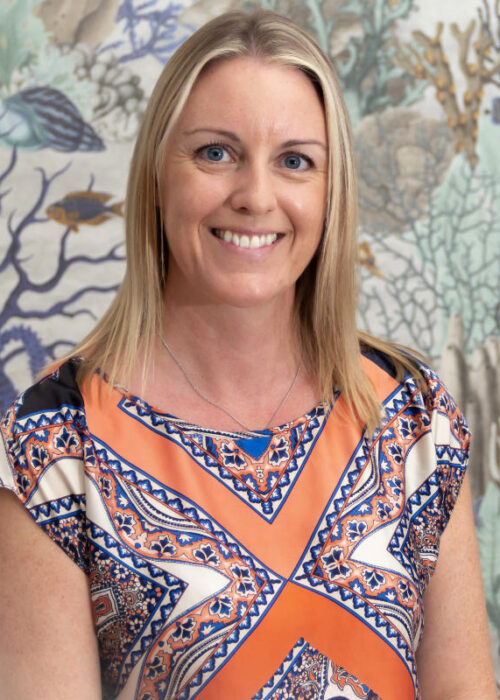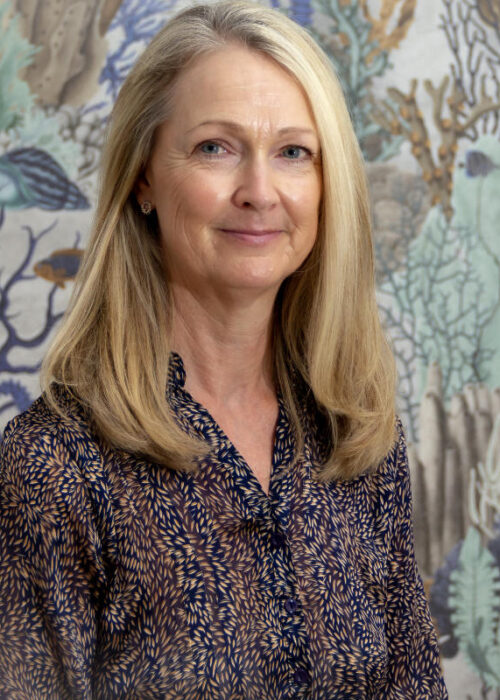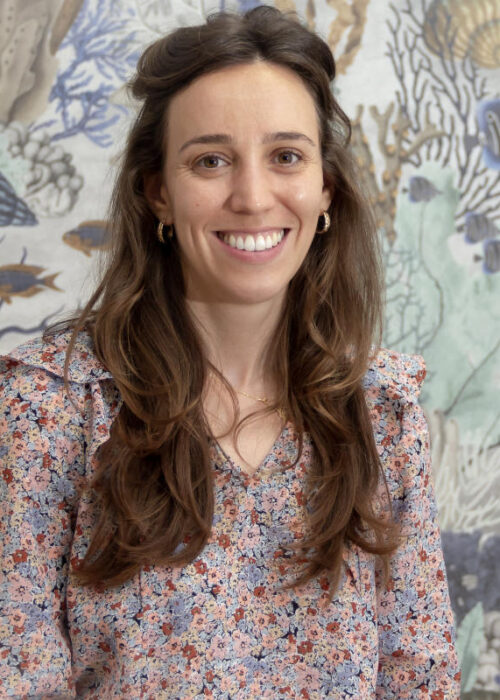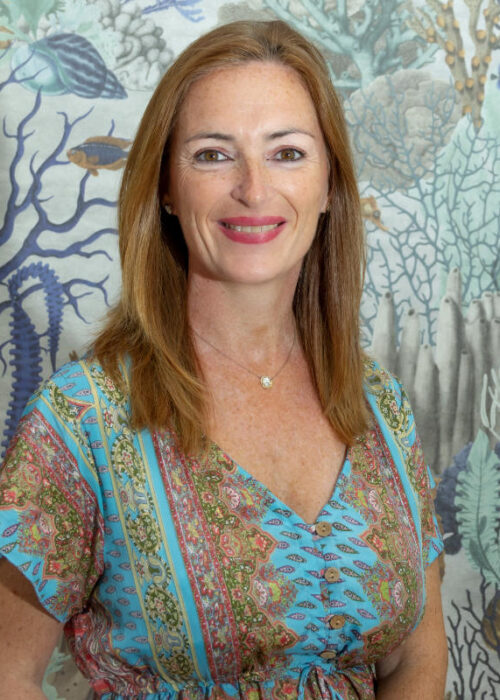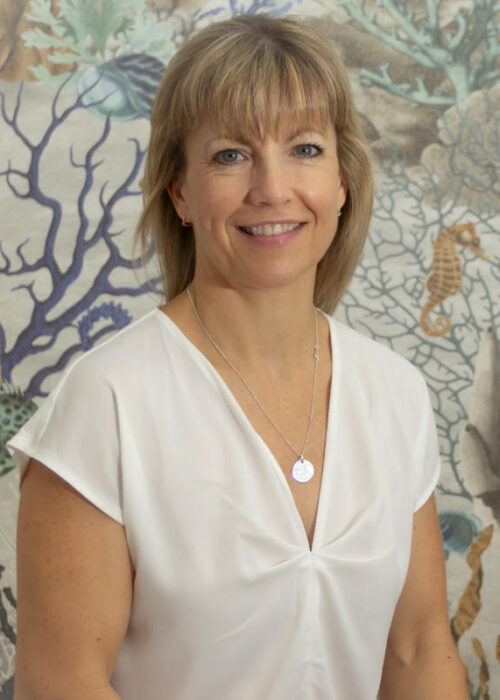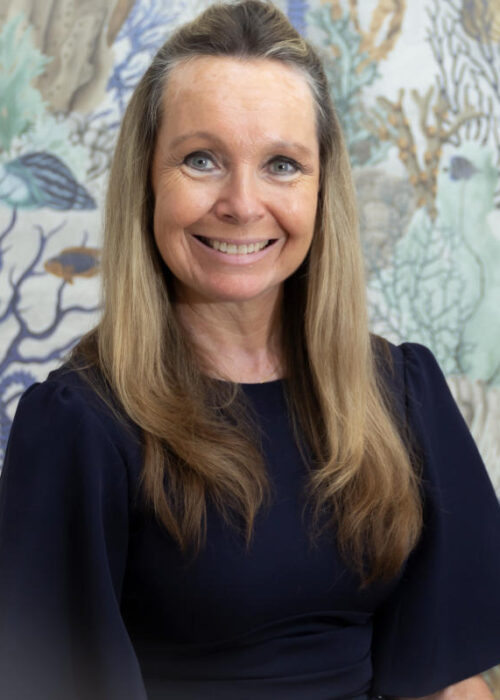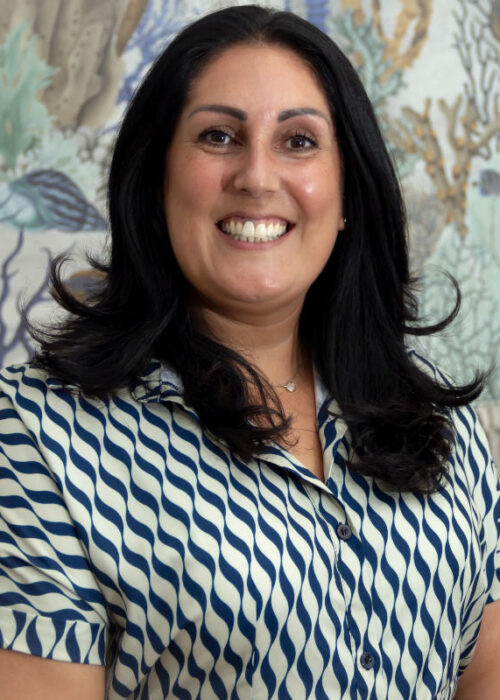Have you ever wondered if turtles can detect colour? Or if you can make rocket fuel from sweets? These are just some of the interesting questions our Year 9 students were trying to answer for this year’s science fair. Throughout science week we had several special lessons and speakers for all year groups. Year 8 were investigating the kidnapping of our beloved lab technician Gerardo and had a visit from some actual CSI police who told them all about their techniques. Year 7 took part in an engineering challenge to design and create spaghetti towers. Years 10 and 12 had an inspirational talk from José Luis Casado Moreno, an engineer of telecommunication, about the importance of science and engineering in our lives.
-
Language and Literature (Language A). Students take their studies in a language in which they are academically competent.
-
Language acquisition (Language B). A modern language course with an emphasis on understanding another culture through its language.
-
Individuals and Societies: Provides for the development of a critical appreciation of the nature and activities of human activities in history and the physical, economic and social environment that people inhabit.
-
Experimental Sciences: The exploration of concepts, theories, models and techniques that underpin each subject area and through these, develop their understanding of the scientific method.
-
Mathematics: The development of mathematical knowledge, concepts and principles and the development of logical, critical and creative thinking.
-
The Arts: Students develop their understanding of the dynamic and changing nature of the arts and explore the diversity of arts and learn to express themselves with confidence and competence. Students may opt to study an additional science, individuals and societies, or languages course, instead of a course in the arts.
